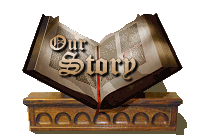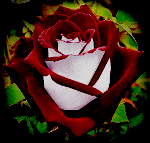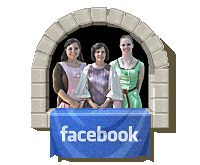



This event brought to you by
|
 |

 |



 Elizabethan Era
Elizabethan Era
The English Renaissance ran from the early 1500's to the 1600's. The Elizabethan Era during Queen Elizabeth 1's reign, the focus of the festival, was the height of this period. It was a time of internal peace, exploration and expansion, music and art. Notably, William Shakespeare and Christopher Marlowe composed their plays during this time.
The medieval period of history was a time of poverty, poor hygiene, and prickly nobles, while the Renaissance was the "rebirth" of all that was good from the classical periods of Greek and Roman history. Or were they? There are a multitude of common misconceptions about both of these times, some more flattering than others. This is a very brief introduction to the conclusions many scholars have drawn about the realities of these periods.
In England, the country of focus for our faire, the medieval period began in 410 AD when the Roman army withdrew from Britannia to aid the troops defending the Roman Empire closer to home. The period directly following the Roman withdrawal is known as the "Early Middle Ages", and lasted from the 5th century into 11th century. This is the beginning of the time many refer to as the "Dark Ages". One of the biggest misconceptions of medieval history is that the "Dark Ages" are thus named because society and the standard of living were so poor. In reality, this time has been dubbed the "Dark Ages" because of how little we actually know about it. Very few written records remain regarding this period for a number of reasons, which we will not digress into here. Therefore, the Early Middle Ages are "Dark Ages" because for subsequent scholars they are not illuminated through writing.
One thing we are certain of is that the Early Middle Ages were a time of drastic transformation. It is during this period that farming was revolutionized, modern saddles were invented, and Christianity spread like wildfire throughout Europe. Most of the few written accounts that remain from this period detail conversion stories of various tribes and countries, or tell the story of a saint's life. Far from a dark point in European history, the Early Middle Ages paved the way for the ever-romanticized periods that immediately followed it.
The High Middle Ages, which lasted from the 11th century into the 14th century, is the period many people imagine when they think of the term "medieval". Knights, jousting, tournaments, feudalism, beautiful ladies at court, and impressive castles are all trademarks of this time. The Crusades also occurred during this period, and it was around this time that the story of Arthur and his knights of the round table first originated.
The Late Middle Ages, which lasted into the 15th century, was once again a time of change. The cultural, economic, and social growth that had occurred in the High Middle Ages came to a halt. Wars, famine, and plague became the immediate concern of the people. This triggered intense feelings of dissatisfaction with the current society, leading to peasant uprisings (which rarely, if ever, had occurred previously), religious schisms, and renewed interest in the old world of the Greeks and the Romans, where everything seemed better. This romanticism of the Classical world, which was manifested especially in art and science, directly resulted in a complete obsession with all that was Classical.
The English Renaissance ran from the early 1500's to the 1600's. The Elizabethan Era during Queen Elizabeth 1's reign, the focus of the festival, was the height of this period. It was a time of internal peace, exploration and expansion, music and art. It is called the Renaissance because it was a rebirth of Roman and Greek culture that had become less common during the Middle Ages. Many famous inventors, astronomers, and mathematicians also made their debuts in the Renaissance.
The Rabbit Hole:
Poetry Foundation: The English Renaissance
An introduction to the cultural revival that inspired an era of poetic evolution.
New Collage Oxford: Renaissance and Restoration (1501–1700)
Historic UK: The English Renaissance
Crash Course Theater, #13:
The English Renaissance and NOT Shakespeare [YouTube]
|
 |
|

See MORE on our Links Page!

|





























